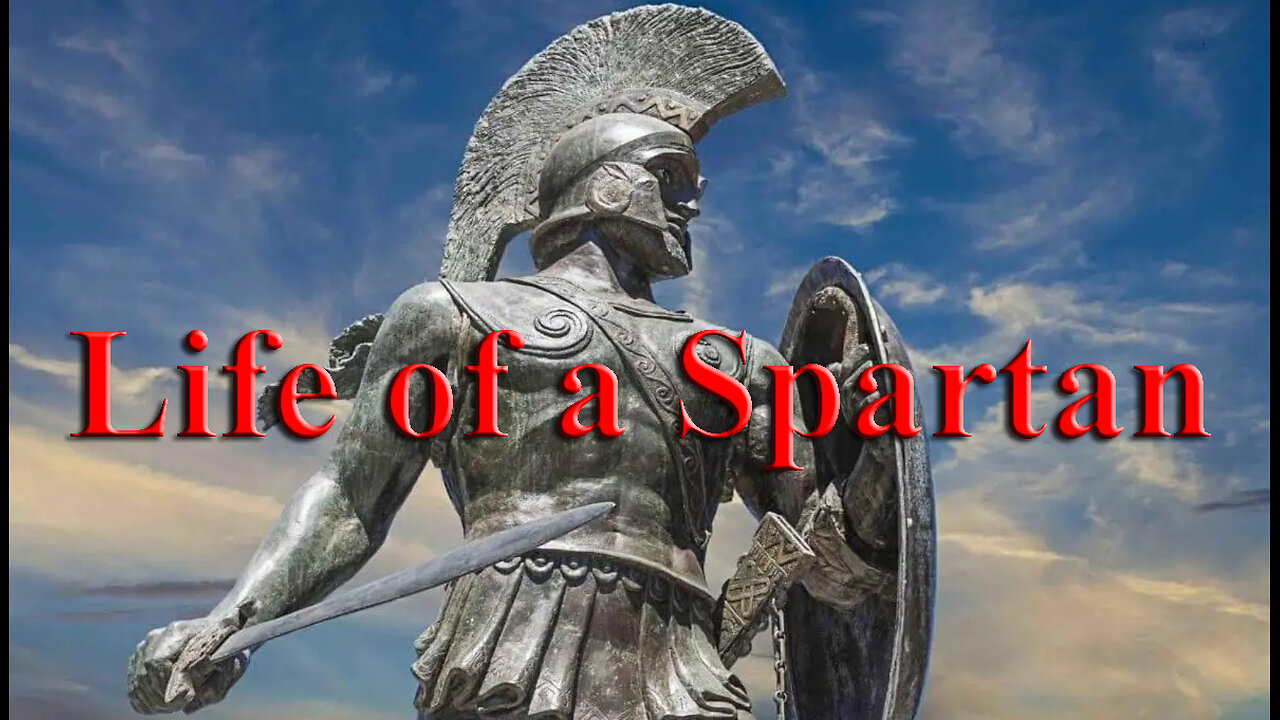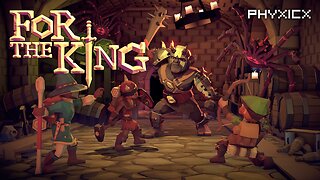Premium Only Content

Life of a Spartan in Greece | History of the Greek Empire
If you want to support our channel, I will be very grateful. PayPal: viktor3177@inbox.lv
Friends! If you liked this video, be sure to like and subscribe to the channel!
"The Spartans" chronicles the rise and fall of one of the most extreme civilizations the world has ever seen. A civilization based on discipline, sacrifice and frugality, where responsibility lay with the collective, and the goal was to create an ideal state and an ideal warrior. Classical historian Bettany Hughes reveals the secrets and complexities of everyday Spartan life: homosexuality was compulsory, money was outlawed, equality was observed, weak boys were executed, and women enjoyed a level of social and sexual freedom unheard of in the ancient world. . This was a nation of formidable fighters, where a glorious death was prized. This can be well demonstrated by the final kamikaze battle at Thermopylae, where King Leonidas and his warriors fought with swords, hands and teeth to repel the Persian invaders and show the rest of the world what it meant to be a Spartan. Sparta was ruthlessly militaristic and founded on the belief that good order and justice protected against chaos and lawlessness. The society, guarded by secret spies, was maintained by a nation of slaves, so all the Spartans could do was fight. Boys were indoctrinated into the Spartan code of death and glory, separated from their mothers at age seven, and left to fend for themselves. This prompted Aristotle to comment that Sparta "turned her children into animals." The training continued throughout adolescence, with the brightest boys being released and turned into death squads that hunted slaves to silence them. It cannot lay claim to the philosophers or artists of Athens, but Sparta contributed as much to Western civilization as Athens. Indeed, it was Sparta, not Athens, that was the first city to offer citizenship to its residents. For many, the ideals formed 2,500 years ago in Sparta can be seen as the harbingers of modern totalitarianism. With the goal of creating an ideal society protected by ideal warriors, Sparta became the enemy of change. A falling birth rate, too few warriors, rebellious slaves, and outdated attitudes toward weapons and war combined to sow the seeds of Sparta's destruction. Eventually, the once great warrior state became a stopover for Roman tourists who came to witness bizarre sadomasochistic rituals.
-
 LIVE
LIVE
Rallied
8 hours ago $7.74 earnedWarzone Challenges w/ Doc & Bob
7,592 watching -
 LIVE
LIVE
Joe Donuts Live
1 hour ago🟢 Lost in Space with My Clones: The Alters Adventure Begins
58 watching -
 7:20:22
7:20:22
Dr Disrespect
9 hours ago🔴LIVE - DR DISRESPECT - TRIPLE THREAT CHALLENGE - WINNING AT EVERYTHING
172K12 -
 LIVE
LIVE
Chrono
2 hours agoBirthday-eve Stream | Helldivers II
72 watching -
 54:40
54:40
BonginoReport
1 day agoLABOR DAY SPECIAL! The Best of Nightly Scroll - Nightly Scroll w/ Hayley Caronia (Ep.124)
77K11 -
 LIVE
LIVE
Joker Effect
22 minutes agoReviewing the downfall of Kick Streaming. Kick streamers welcome to Rumble! Stake bombshell found!
471 watching -
 1:06:10
1:06:10
Russell Brand
9 hours agoThe Greatest Lie Ever Told? - SF625
61.2K97 -
 LIVE
LIVE
elwolfpr
2 hours agoBlack Ops 6: Rise of the Relentless
28 watching -
 LIVE
LIVE
Phyxicx
34 minutes agoChillin - For The King - 9/1/2025
7 watching -
 LIVE
LIVE
Spartan
6 hours agoNew Game+ on E33, then back to Halo Grind
72 watching